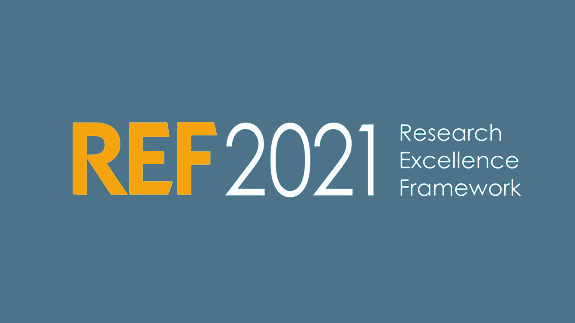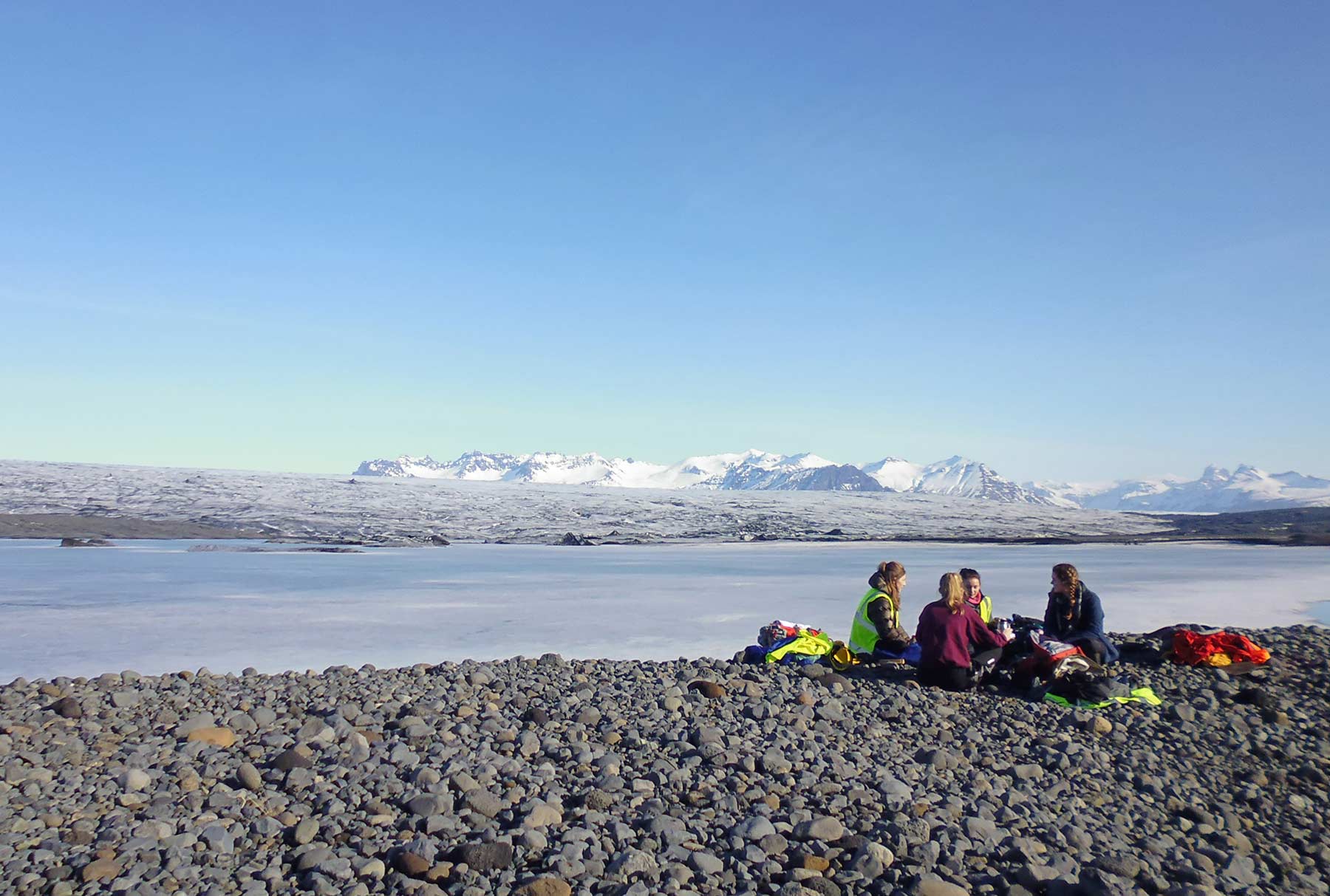REF 2021
Geography and Environmental Studies at Newcastle University achieves strongest ever performance in the UK’s Research Excellence Framework, more than doubling its research power (119%)
Research success
The Research Excellence Framework (REF) has reported the results of higher education research quality in the UK. REF reports on its assessment every 7 years.
In REF 2021 a remarkable 95% of research in Geography and Environmental Studies at Newcastle has been classified as ‘world leading’ (40%) or ‘internationally excellent’ (55%) in originality, significance and rigour.
Our total research GPA has increased from 3.17 in the last assessment to 3.35. Our total research power has more than doubled, with a 119% increase.

This is the strongest performance by Newcastle Geography in any REF / RAE to date. Building on the success of REF 2014, Newcastle Geography has increased research capacity in its field through 106% growth in Unit size (56.3FTE, up from 27.2FTE in 2014).
100% of eligible colleagues were submitted to REF 2021, with collective research achievements that include 95.3% of outputs (journal papers, monographs, chapters) graded as ‘world leading’ or ‘internationally excellent’ (80% in REF 2014).
Our research impact
Newcastle Geography has a long-standing tradition of engaged research with benefits for the economy, society and environment, through innovative projects co-designed with and for beneficiary communities. 100% of our research impact was graded as ‘world leading’ or ‘internationally excellent’ (90% in REF 2014), with a diverse focus on:
- challenging Islamophobia
- harvesting practices in the Global South
- improving subnational economic development in the UK
- building infrastructure resilience through landslide forecasting
- setting international standards for official labour market boundaries
REF 2021 has also recognised the strength of our research environment, based on our collective success in securing competitive research funding (£6.22M since REF 2014), mentoring of PhD early career and postgraduate researchers, and major recent investments in research facilities.
Our inclusive research culture is rooted in a long history of promoting equal opportunity, also evident through our research on:
- gender politics
- inclusive economies
- work/life balance
- racial equality
- LGBTQ+ support and intersectionality
Newcastle Geography saw 87.5% of our research environment graded as ‘world leading’ or ‘internationally excellent’, including 4* recognition of our research environment (37.5%) for the first time.
REF 2021 scoring
- 4* Quality that is world-leading in terms of originality, significance and rigour.
- 3* Quality that is internationally excellent in terms of originality, significance and rigour but which falls short of the highest standards of excellence.
- 2* Quality that is recognised internationally in terms of originality, significance and rigour.
- 1* Quality that is recognised nationally in terms of originality, significance and rigour.
- U (unclassified) Quality that falls below the standard of nationally recognised work or work which does not meet the published definition of research for the purposes of this assessment.
Newcastle University - Geography & Environmental Studies (UoA14)
| Profile | FTE Category A Staff Submitted | 4* | 3* | 2* | 1* | Eligible FTE | % FTE Submitted | GPA | Power |
|---|---|---|---|---|---|---|---|---|---|
| Outputs | 36.70 | 58.60 | 4.70 | 0.00 | 3.32 | 186.92 | |||
| Impact | 50.00 | 50.00 | 0.00 | 0.00 | 3.50 | 197.05 | |||
| Environment | 37.50 | 50.00 | 12.50 | 0.00 | 3.25 | 182.98 | |||
| Overall | 56.30 | 40.00 | 55.00 | 5.00 | 0.00 | 56.30 | 100.00 | 3.35 | 188.61 |
Celebrating success
Head of Geography Dr Stuart Dawley spoke about the results.
“We're really excited to have more than doubled our research power since 2014. This demonstrates the significant and strategic growth in the breadth, depth and quality of our research in Geography at Newcastle."
With 95% of research classified as ‘world leading’ and ‘internationally excellent’, Dr Dawley paid tribute to the "collective effort from all colleagues involved - academics, technicians, professional services colleagues and postgraduate researchers– in achieving this exceptional performance.”
Director of Research in Geography and REF 2021 Coordinator, Professor Al James, praised this collective result.
“Newcastle Geography maintained an inclusive, open and transparent REF submission process from the outset, which positioned the REF as just one dimension of who we are, what we do and why our work matters."
"Colleagues worked so hard to produce the final REF submission during COVID lockdown, juggled alongside homeschooling, family, and self-care. We are particularly proud of our very talented community of early- and mid-career colleagues, and postgraduate researchers, and are excited to see their research flourish over the next few years. Our future looks bright.”
Geography Impact Lead, Dr Louise Kempton, welcomed these results in Geography:
“This stellar increase in research power is a clear affirmation of the world-leading research that takes place within Newcastle’s Geography community. Newcastle Geography has a long-standing tradition of engaged research. We're committed to critical research that has a societal impact, is openly accessible to all, engages with diverse communities and audiences, and promotes socio-economic and environmental justice. It serves as an immense source of pride for us all.”
Newcastle Geography maintained an inclusive, open and transparent REF submission process from the outset, which positioned the REF as just one dimension of who we are, what we do and why our work matters
Notes
Geographical research at Newcastle is organised through four research clusters: Physical Geography, Geographies of Social Change, Economic Geographies, Power Space and Politics; and one research centre, the Centre for Urban and Regional Development Studies (CURDS). For more information see: https://www.ncl.ac.uk/gps/research/geography-research/
Research impact case studies submitted by Newcastle Geography to REF2021 were: Challenging Scottish Exceptionalism on Racism and Islamophobia; Improving Sustainable Wildflower Harvesting Practices in the Global South; Improving Subnational Economic Development in the UK; Building Infrastructure Resilience through Landslide Forecasting; and Setting International Standards for Official Labour Market Boundaries. For more information see: https://www.ncl.ac.uk/ref-2021/units-of-assessment/geography/
Newcastle Geography is proud to host the RGS-IBG Annual Conference in August 2022. For more information see: https://www.rgs.org/research/annual-international-conference/
REF2021 was undertaken by the four UK higher education funding bodies (Research England, the Scottish Funding Council, the Higher Education Funding Council for Wales (HEFCW), and the Department for the Economy, Northern Ireland (DfE)). The results will be used to determine research funding from 2022-2028. For more information see: https://www.ref.ac.uk/
GPA is a simple measure of the overall or average quality of research, which takes no account of the FTE submitted. It is calculated by multiplying the percentage of research in each grade by its rating, adding them all together and dividing by 100. To calculate ‘research power’, GPA scores are multiplied by total staff FTE submitted. For more information see: https://www.ref.ac.uk/
